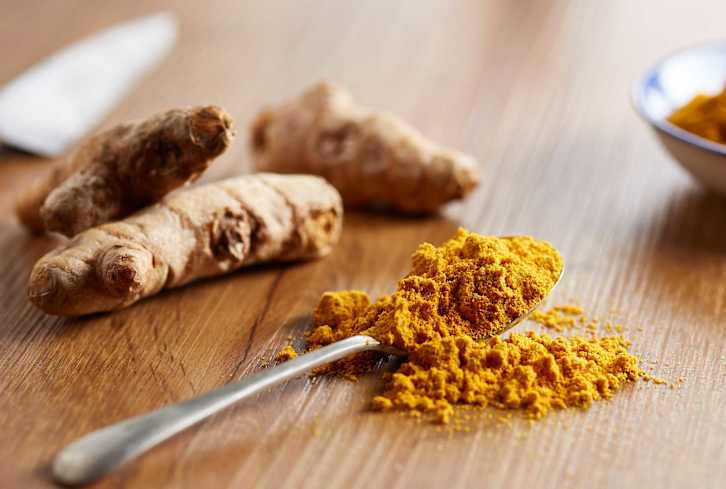Advertisement
Want To Lower Your Resting Heart Rate? Eat More Omega-3 Fats


Your heart rate can reveal a lot about your health—an elevated resting heart rate (RHR) is a risk factor for heart problems like hypertension, plaque buildup, heart failure, and even early death (it's actually a sneaky good predictor of longevity1).
Exercise and physical fitness is one of the most known ways to improve your heart rate, but what you eat also impacts it. And omega-3s are one of the best (if not the best) nutrients that can help lower your high heart rate.
Here's how and exactly what you need to do to reap the benefit.
Omega-3s and heart rate
Omega-3s target heart rate in various ways—the most direct one, however, is by acting on the electrical excitability2 of heart tissue cells.
Each pump of the heart is powdered by electrical impulses, and omega-3s seem to prolong the time between those signals, therefore decreasing your heart rate.
They may also work by increasing the rest-and-digest3 (or parasympathetic) side of the nervous system and decreasing the fight-or-flight side (or sympathetic) to promote a lower RHR.
What is a high heart rate & why would you want to lower it?
And omega-3s appear to be especially powerful at lowering RHR for people who have an elevated heart rate to begin with.
Now, the normal range for RHR is quite wide—ranging from 60 to up to 100 beats per minute4 (bpm). For those with high levels of physical fitness or who are endurance athletes, a normal RHR may be much lower, ranging from 35 to 60 bpm.
Anything over 100 bpm is absolutely considered high, but even being at the upper end of normal may not be ideal for you.
Having an elevated resting heart rate may increase your risk of:
- Heart disease5
- Hypertension
- Atherosclerosis6 (aka plaque buildup in the arteries)
- Type 2 diabetes
- All-cause mortality
So improving your RHR may have a significant impact on your overall health and longevity.
How much omega-3 do you need to see a benefit?
Most of the research on omega-3s and heart rate looks specifically at fatty fish intake or the amount of EPA and DHA (the types of fat mostly found in fish) consumed via fish or supplements and not through plant-based sources of omega-3s.
- Data indicate that on average, fish oil can decrease heart rate by 1.6 bpm7 compared to placebo.
- Another study found that a 1,000-milligram higher intake of fish oil reduced RHR by about 2.3 bpm8.6
- And high fatty fish intake9 of five or more servings per week was linked to a 3.2-bpm reduction8 in RHR.
These studies also show that consistent intake of omega-3s is needed for about 12 weeks to really make a difference.
Getting more omega-3s in your life
There are so many reasons to up your intake of omega-3s (most of us truly aren't getting enough)—not only do they help lower a high heart rate, but they also support brain health, vision, mood, and immunity.
If you do want to focus on heart rate, though, eating five or more servings of fatty fish every week is a good place to start. Choose from fish like salmon, anchovies, sardines, and tuna. And if five servings seems like a lot, then start with two and work your way up.
Fish oil supplements can also be an easy way to significantly increase your omega-3 intake. To reap the most benefits, choose one that provides at least 1,000 milligrams (if not 1,500 milligrams) of combined EPA and DHA daily.
Here's a list of our favorite omega-3 supplements.
The takeaway
Resting heart rate is an easy-to-track metric that reveals a lot about your health (here are our favorite trackers).
While there are lots of factors (age, fitness level, stress, genetics, medications, etc.) that influence your RHR, increasing your intake of omega-3s is one of many approaches you can take to try to lower it.
9 Sources
- https://pubmed.ncbi.nlm.nih.gov/30761923/
- https://www.ncbi.nlm.nih.gov/pmc/articles/PMC3483717/
- https://www.ncbi.nlm.nih.gov/pmc/articles/PMC3217222/
- https://www.ncbi.nlm.nih.gov/pmc/articles/PMC6592896/
- https://pubmed.ncbi.nlm.nih.gov/25447617/
- https://www.ncbi.nlm.nih.gov/pmc/articles/PMC3082732/
- https://pubmed.ncbi.nlm.nih.gov/16172267/
- https://pubmed.ncbi.nlm.nih.gov/16875972/
- https://pubmed.ncbi.nlm.nih.gov/16442366/
Watch Next
Enjoy some of our favorite clips from classes
Enjoy some of our favorite clips from classes
What Is Meditation?
Mindfulness/Spirituality | Light Watkins
Box Breathing
Mindfulness/Spirituality | Gwen Dittmar
What Breathwork Can Address
Mindfulness/Spirituality | Gwen Dittmar
The 8 Limbs of Yoga - What is Asana?
Yoga | Caley Alyssa
Two Standing Postures to Open Up Tight Hips
Yoga | Caley Alyssa
How Plants Can Optimize Athletic Performance
Nutrition | Rich Roll
What to Eat Before a Workout
Nutrition | Rich Roll
How Ayurveda Helps Us Navigate Modern Life
Nutrition | Sahara Rose
Messages About Love & Relationships
Love & Relationships | Esther Perel
Love Languages
Love & Relationships | Esther Perel
What Is Meditation?
Box Breathing
What Breathwork Can Address
The 8 Limbs of Yoga - What is Asana?
Two Standing Postures to Open Up Tight Hips
How Plants Can Optimize Athletic Performance
What to Eat Before a Workout
How Ayurveda Helps Us Navigate Modern Life
Messages About Love & Relationships
Love Languages
Advertisement

Reviewers Say Taking This Supplement Has Improved Their Fitness & Muscle Tone*
Molly Knudsen, M.S., RDN

Analysis Of 99 Studies Shows This Vitamin Improves Blood Pressure & Insulin
Molly Knudsen, M.S., RDN

Reviewers Say Taking This Supplement Has Improved Their Fitness & Muscle Tone*
Molly Knudsen, M.S., RDN

Analysis Of 99 Studies Shows This Vitamin Improves Blood Pressure & Insulin
Molly Knudsen, M.S., RDN

Reviewers Say Taking This Supplement Has Improved Their Fitness & Muscle Tone*
Molly Knudsen, M.S., RDN

Analysis Of 99 Studies Shows This Vitamin Improves Blood Pressure & Insulin
Molly Knudsen, M.S., RDN

Inflammation, Memory & Muscle Health — Study Shows This Spice Can Help It All
Molly Knudsen, M.S., RDN

Reviewers Say Taking This Supplement Has Improved Their Fitness & Muscle Tone*
Molly Knudsen, M.S., RDN

Analysis Of 99 Studies Shows This Vitamin Improves Blood Pressure & Insulin
Molly Knudsen, M.S., RDN

Inflammation, Memory & Muscle Health — Study Shows This Spice Can Help It All
Molly Knudsen, M.S., RDN














